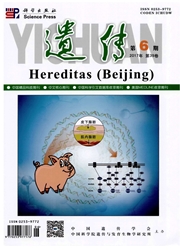

 中文摘要:
中文摘要:
Ecological impact of transgene flow into populations of wild/weedy relatives is associated with fitness effects in hybrid progeny. Most studies assessing fitness effects focus essentially on early-generation hybrid progeny. However, whether the transgenes remain effective and durable in advanced generations of hybrid progeny remains unclear. We conducted a common garden experiment with F5–F7hybrid progeny derived from crosses between insect-resistant transgenic(Bt/Cp TI) rice and weedy rice, to examine their insect resistance and fitness effects of transgenes on progeny. Hybrid progeny were grown under different insect pressures and cultivation modes where insect damage and fitness-related traits were measured in the same growth season. Plants with transgenes showed significantly lower insect damage(10 % vs.32 %) and higher fecundity(551 vs. 392 seeds/plant) than those without transgenes in F5–F7populations, suggesting the efficacy of transgenes for insect resistance. Fitness benefits of the transgenes were similar among the F5–F7populations, indicating the stability of transgenic effects. A positive correlation between insect index and fecundity change was detected, stressing the important role of ambient insect pressures in assessing fitness effects caused by insect-resistance transgenes. Our results have importantimplications for assessing ecological impacts caused by transgene flow to wild/weedy relatives. For cost-effectiveness, the experimental estimation of fitness effects is probably sufficient based on data from hybrids in early generations. Given that fitness effects of insect-resistance transgenes are associated with ambient insect pressure,ecological risk assessment on transgene flow should consider this variable in experimental design, reasonably reflecting actual situations in wild/weedy populations.
 英文摘要:
英文摘要:
Ecological impact of transgene flow into pop- ulations of wild/weedy relatives is associated with fitness effects in hybrid progeny. Most studies assessing fitness effects focus essentially on early-generation hybrid progeny. However, whether the transgenes remain effective and durable in advanced generations of hybrid progeny remains unclear. We conducted a common garden experi- ment with Fs-F7 hybrid progeny derived from crosses between insect-resistant transgenic (Bt/CpTI) rice and weedy rice, to examine their insect resistance and fitness effects of transgenes on progeny. Hybrid progeny were grown under different insect pressures and cultivation modes where insect damage and fitness-related traits were measured in the same growth season. Plants with transgenes showed significantly lower insect damage (10 % vs. 32 %) and higher fecundity (551 vs. 392 seeds/plant) than those without transgenes in the efficacy of transgenes Fs-F7 populations, suggesting for insect resistance. Fitness benefits of the transgenes were similar among the Fs-F7 populations, indicating the stability of transgenic effects. A positive correlation between insect index and fecundity change was detected, stressing the important role of ambient insect pressures in assessing fitness effects caused by insect-resistance transgenes. Our results have important implications for assessing ecological impacts caused by transgene flow to wild/weedy relatives. For cost-effec- tiveness, the experimental estimation of fitness effects is probably sufficient based on data from hybrids in early generations. Given that fitness effects of insect-resistance transgenes are associated with ambient insect pressure, ecological risk assessment on transgene flow should consider this variable in experimental design, reasonably reflecting actual situations in wild/weedy populations.
 同期刊论文项目
同期刊论文项目
 同项目期刊论文
同项目期刊论文
 期刊信息
期刊信息
